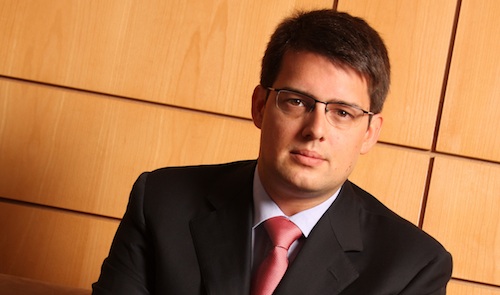
There is little risk of MTN creating two centres of power, one around CEO-designate Sifiso Dabengwa and the other around the still-to-be-appointed CEO of MTN International.
That’s the view of Kristoff Puelinckx, MD of emerging markets telecoms consultancy Delta Partners, who says that, if anything, a new group structure, announced by MTN shortly before Christmas, will provide additional support to Dabengwa in his new role.
Dabengwa, currently the group’s chief operating officer, will succeed outgoing group CEO Phuthuma Nhleko on 1 April.
The group is doing away with the role of chief operating officer and creating the new position of CEO of MTN International, which holds all of the group’s subsidiary operations outside SA.
This has prompted speculation that the group will have two centres of power — one in Dubai, where it’s understood MTN International will be headquartered, and one in SA, where the group head office is located.
Nhleko, who has overseen the creation of billions of rand in shareholder value in his eight years at the helm of the group, will serve as nonexecutive chairman of MTN International in addition to being appointed as deputy chairman of the group board. Both appointments are effective from 1 October.
Puelinckx says the new structure does not mean that the role of group CEO is diminished or that two centres of power will be created.
“MTN covers a vast number of countries and Sifiso will need support to oversee all that,” Puelinckx says. “I think it’s a wise decision. Whether you have a head of international or a structure of vice presidents like you had before — both can work.”
He says MTN needs to streamline its international operations and launch new products and services. “If anything, the new structure reflects the fact that more and more MTN will try to drive synergies across its operations.”
Puelinckx says Dabengwa’s appointment as CEO was the right call by the MTN board, despite suggestions in some quarters that the group ought to have appointed someone with experience of more mature telecoms markets.
“It would have been a real concern for me if MTN had brought in someone from outside the industry or outside Africa,” Puelinckx says.
“Increasingly, growth needs to come from … driving new product and service lines. Some people suggested it would therefore have been better to bring someone from Europe or the West. I really disagree with that. Africa is very different. It’s not like Europe.
“I really think MTN is much better off having a CEO who understands the current market realities, not only its own position in the market, but where the opportunities are.”
Puelinckx says that for large operators like MTN, it is becoming much more difficult to find new growth opportunities. It no longer makes sense to pursue many of the new telecoms licences up for grabs and acquisition targets are few and far between.
Given that Dabengwa has been closely involved in all of MTN’s key markets and understands them intimately, Puelinckx says MTN “could not have appointed a better CEO”. — Duncan McLeod, TechCentral
- Subscribe to our free daily newsletter
- Follow us on Twitter or on Facebook




